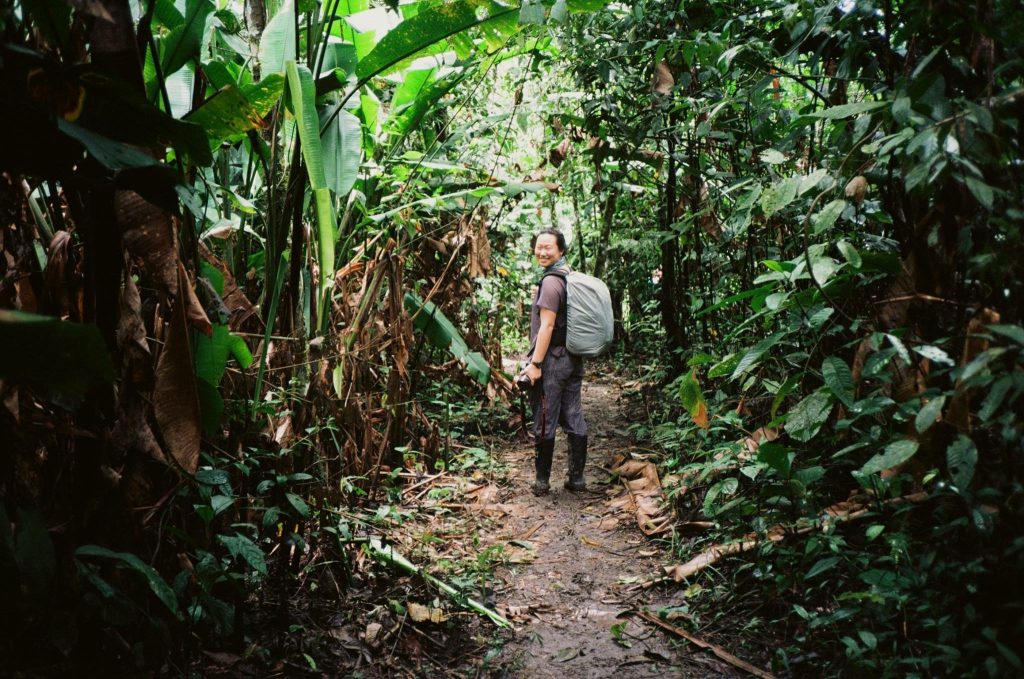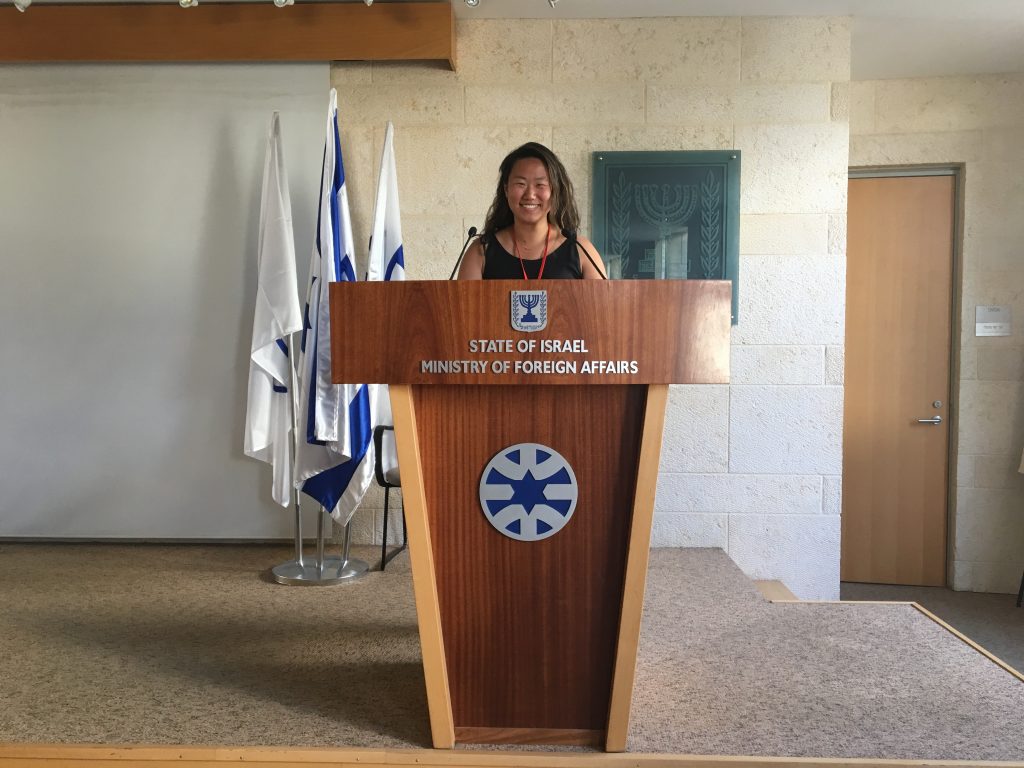Stephanie Xu is an alumna of the 2016-17 Munk One cohort and graduated from U of T with a major in Peace, Conflict and Justice, and a double minor in Contemporary Asian Studies and Diaspora and Transnational Studies. Last year, she received her Master of Science in Media, Communications and Development from the London School of Economics (LSE) and is currently working in Geneva with the International Committee of the Red Cross (ICRC). We connected with her to chat about her highlights from Munk One, and how the research and communications experience she received through her time in the program led her to where she is now.
What was the most interesting part about working as a Research Student and Communications Assistant for Munk One?
My research work really panned out after Munk One where, as a Research Student, I was able to go to Ecuador with Professor Teresa Kramarz and Professor Donald Kingsbury to study the politics of oil and its effects on the community. That experience then allowed me to extend the research into my undergraduate thesis, exploring another avenue of the original research question for which Professor Kramarz was also my supervisor. I think the most interesting aspect of the research experience was seeing how the work you conduct within U of T extends beyond the confines of school and you get to witness the real-world impact. Plus, it was just very eye-opening to see that the things you learn get applied daily at a political level. I was also a Communications Assistant for Munk One through the Work-Study program. I really appreciated the skills I built through the role because they were directly transferable to my other roles as well.
What was your summer broad experience like? Did you have any revelations or reflections?
My summer abroad with Munk One was going to Israel for a month to participate in the Co-existence Program at the Hebrew University
of Jerusalem. What I loved about the program is that you go in with a certain set of ideas, questions and knowledge, and you leave with either more questions, or a very different perspective. I think that’s what’s so important about growing as both a student and a person – you learn through adjusting your views.
The program was also really hands-on, which I really enjoyed, and we were able to go on field trips and speak to people from different parts of Israel with various political views. I think when you hear about conflict and learn about conflict, it’s often through a very protected perspective, and even though you are talking to people who’ve suffered through it, it can still feel an arm’s length away. But being physically there, it really hits you that people are living in conflicts like these every day, and that the work in what we’re learning is to ensure that these things don’t happen again. So it was heartbreaking, but it was also very, very eye-opening – you end up coming back with a totally new sense of understanding around global politics and conflict and how you can contribute in your own way.
What led you to choose the Master’s program you studied at LSE and what was your experience like?
I’ve always been interested in visual representation and conflict or international development and through U of T, with my PCJ background, that allowed me to understand the political aspect of this interest, but I wanted to learn more about the media and the visual aspect of it. LSE just happened to have that perfect combination of my interests. I think U of T also really prepares you well for any type of academic situation, and from my time there, I really felt that I was fully equipped to take part in an even more global institution and discussions with students from all over the world in a different educational system.
What are you up to these days? Is there a connection with your time from Munk One?
I recently started a new job with ICRC in communications with their Law and Policy Outreach Department, and there are definitely connections to Munk One. For starters, Munk One is very centred around finding global solutions, and what’s so great about the program is that you build the skillset to tackle pressing challenges, but can also adapt it in your own way to find what a good solution looks like. For example, we explored different avenues of thinking and being critical, such as using process maps to identify who key stakeholders are and identifying what the core issues are. I use these skills in my current job, where I’m dealing with real-life situations and conflicts. The skills from Munk One are very adaptable, and so you really do get to carry them with you and apply them to whatever position you find yourself in.
Do you have any words of wisdom or advice for current Munk One students?
Don’t be afraid to be intentional and go for it! If you’re a first-year trying to apply for a grant targeted towards upper-year students, don’t hold yourself back because you don’t think you fit the criteria. The worst-case scenario is that you don’t get it, but that would have been the same if you didn’t apply for it anyways. Plus, even what you don’t get ends up being valuable practice. It all does add up and every experience you have at U of T accumulates into something useful that will serve you in the future.

